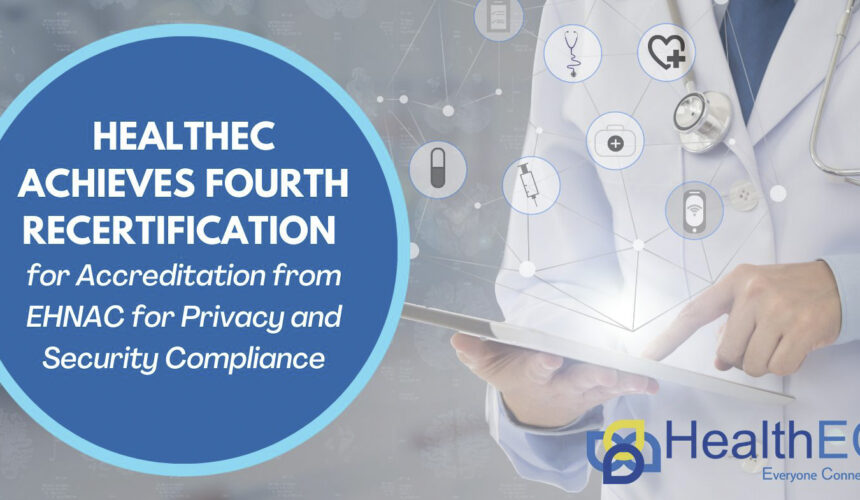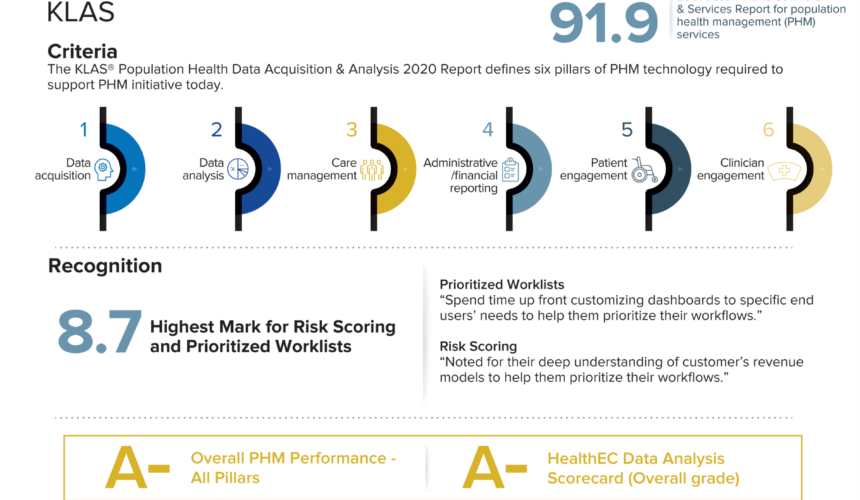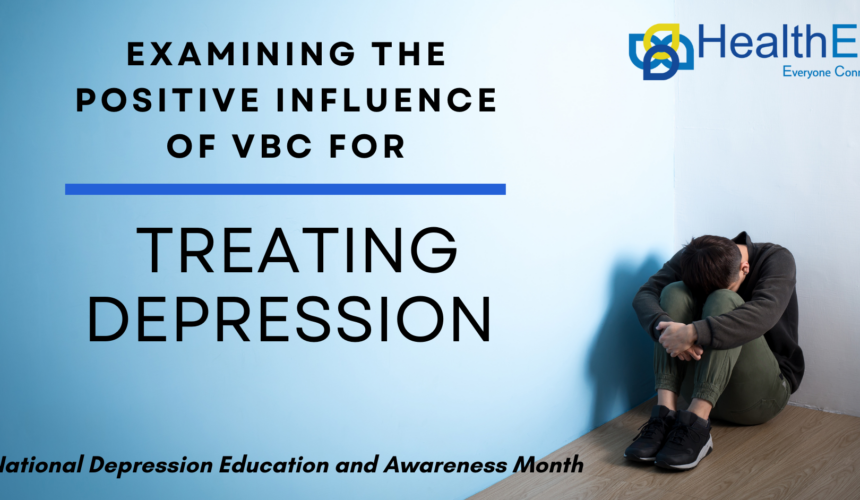While the fear, uncertainty, and isolation of the COVID-19 pandemic have practically disappeared, the mental health crisis sparked by these issues have not been so easily erased. Moreover, the number of people who need mental and behavioral health services continues to surge.
Blog

Moving to Value-based Care in a Post-Pandemic World
“We shall have no better conditions in the future if we are satisfied with all those which we have at present.” ― Thomas A. Edison

HealthEC Achieves Fourth Recertification for Accreditation from EHNAC for Privacy and Security Compliance
OSAP accreditation ensures adherence to health data processing standards and compliance with security infrastructure and integrity requirements.

Combining Behavioral Health and Value-based Care: How One IPA Succeeded Using HealthEC’s PHM Solution
A clinically integrated behavioral health network was created to improve the integration of behavioral and physical healthcare by serving Medicaid beneficiaries in collaboration with payers. The evolution and transition to behavioral health value-based contracting was an initiative that proved rewarding for the independent practice association (IPA) providers and patients.

Downside Risk Pays Off: Four Best Practices for High ACO Performance
The Medicare Shared Savings Program (MSSP), the accountable care organization (ACO) model that served 10.6 million seniors in 2020, collectively saved Medicare $4.1 billion last year, and $1.9 billion after accounting for shared savings payments, according to the National Association of ACOs (NAACOs) and as recently published in Healthcare Finance. 513 ACOs participated in the Shared Savings Program in 2020, down from the 541 MSSP ACOs in 2019.

Patient Centeredness Transfers to Data, Too
We know data from population health technology can assist the provider organizations to make management strategy decisions that make a significant impact in disease management, for instance, with diabetic populations thanks to sophisticated technology and tracking tools that add real-time data from remote monitoring devices to influence the drug regime changes for optimizing patient outcomes, however, how about pattern recognition when race and racial information is added to the clinical data that highlights disparities that have been documented across the healthcare industry including COVID-19 morbidity and mortality rates? How can data-driven technology help physicians and care teams improve care quality...

The Role of CINs in Securing Value-Based Contracts
CMS recently calculated that the United States spent $3.8 trillion — or 18 percent of the gross domestic product — on healthcare in 2019. The current healthcare landscape indicates this spending rate will not slow anytime soon due to the COVID-19 pandemic, an ongoing healthcare crisis. Value-based care models like Accountable Care Organizations (ACOs) and Clinically Integrated Networks (CINs) have formed to address the alarming growth in healthcare spending and simultaneously improve the quality and coordination of care in the U.S. Let’s take a look at these models and their ability to secure value-based contracts for better disease and population...

HealthEC Pushes PHM Forward with Recognition from KLAS, Gartner and Others
2020 was a year unlike any other, posing unparalleled challenges to the healthcare industry. If there was ever a time to focus on the importance of population health management, this was it. HealthEC rose to the challenge. And in the process, the company earned accolades from four of the industry’s leading voices: KLAS®, Chilmark, Black Book, and Gartner. Additionally, HealthEC took home top honors from the CIO 100, Indian Achievers’, and American Business Awards®. KLAS HealthEC received an overall score of 91.9 for the 2021 Best in the KLAS Software & Professional Services Report for PHM services, with high performance...

Preparing for the Future of Population Health 4.0
Public Health 1.0 identifies the initiation and growth in both knowledge and tools for medicine and public health. Public Health 2.0 characterizes the development of our traditional public health systems within both local and the federal government. Public Health 3.0 encapsulates the involvement of multiple sectors including other governmental agencies, community-based organizations, and the private sector. It also defines the focus of the social determinants of health. Public Health 4.0, or rather Population Health 4.0, is the recognition of health as a global entity and the focus on identifying and eliminating health disparities. The focus is on population health management....

CMS Interoperability and Patient Access Final Rule – Part 3
Where are you going to invest to maximize benefits?

CMS Interoperability and Patient Access Final Rule Blog – Part 2
Making the Economics Work for You

Chasing Stars: HealthEC’s Sita Kapoor Inspires Women in Healthcare IT
This month we celebrated International Women’s Day, a time set aside to honor immense and varied contributions of women made over the course of history and in contemporary society. HealthEC is proud of its female leaders in our organization who have gone above and beyond to drive healthcare and population health management (PHM) since its inception in 1997. Sita Kapoor, Chief Information Officer at HealthEC, winner of the 2021 CIO 100 Award, the 2021 Indian Achievement Award in Business Leadership, and 2019 winner of Health Data Management’s Most Powerful Women in Healthcare IT, has played a tremendous role in leading...

